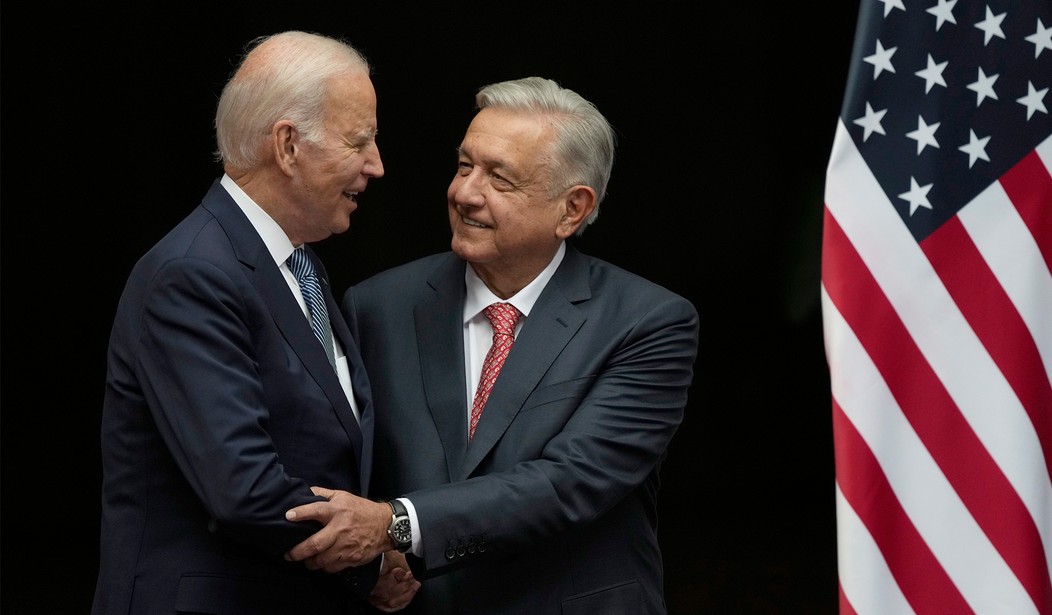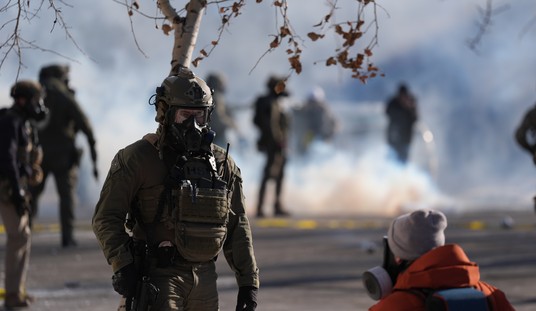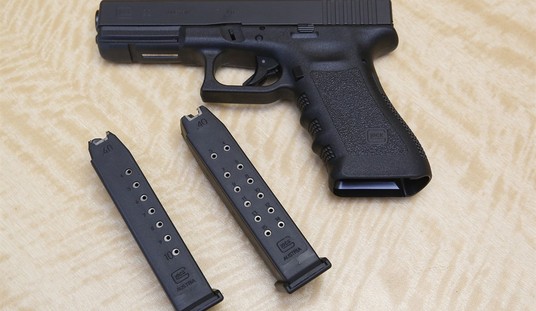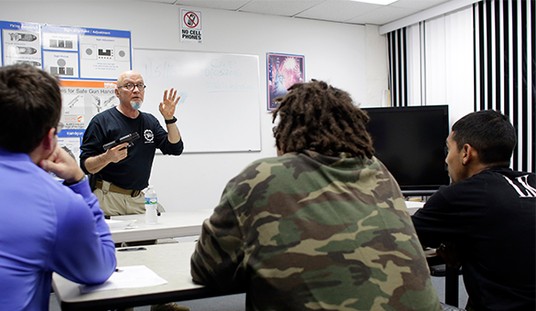Mexico President Andrés Manuel López Obrador has placed the blame for cartel violence in his country squarely on the shoulders of U.S. gun makers, but some bombshell reports by the New York Times, ProPublica, and others have revealed investigations by the DEA and other federal law enforcement agencies turned up evidence that Obrador's administration has been doing the cartel's bidding. Instead of pursuing these investigations, however, the Obama and Biden administrations instead squashed them in the name of diplomacy.
Obrador's strategy of using "hugs, not bullets" to fight the cartels has raised eyebrows since he took office in 2018, but according to ProPublica, the allegations that he was quietly willing to aid the cartels in exchange for campaign cash first popped up almost a decade earlier, when the DEA nabbed one of Obrador's operatives in his failed presidential campaign from 2006.
To avoid federal prison, the operative gave a detailed account of the traffickers’ cash donations, which he said he helped deliver. He also surreptitiously recorded conversations with Nicolás Mollinedo Bastar, the close López Obrador aide who the operative said had participated in the scheme.
Along with the sworn statements of other witnesses, the taped conversations indicated that Mollinedo was aware of and involved in the donations by one of the country’s biggest drug mafias, current and former officials familiar with the case said.
But some officials felt the evidence was not strong enough to justify the risks of an extensive undercover operation inside Mexico. In late 2011, DEA agents proposed a sting in which they would offer $5 million in supposed drug money to operatives working on López Obrador’s second presidential campaign. Instead, Justice Department officials closed the investigation, in part over concerns that even a successful prosecution would be viewed by Mexicans as egregious American meddling in their politics.
“Nobody was trying to influence the election,” one official familiar with the investigation said. “But there was always a fear that López Obrador might back away on the drug fight — that if this guy becomes president, he could shut us down.”
That would be Eric "Fast and Furious" Holder's DOJ that refused to continue the investigation, despite the substantial evidence that at least one of Obrador's top campaign staffers was taking money from the cartels.
Obrador's bid to become president in 2012 failed, but he took office in his third attempt in 2018. Apparently there was another round of investigations around the time of his election, but according to the New York Times, efforts to prove Obrador's connections to the cartels stopped at some point after Joe Biden was sworn in as president in early 2021.
Last month’s media reports, including one by ProPublica, about a U.S. inquiry into 2006 campaign donations — for an election he did not win — ignited a firestorm in Mexico.Mr. López Obrador publicly denounced the stories, implying they were aimed at influencing the country’s presidential election in June, in which his protégé, the former Mexico City mayor Claudia Sheinbaum, is leading the race to replace him. He suggested the reports could complicate talks on migration and fentanyl with the U.S. government, and said he considered not receiving President Biden’s homeland security adviser for a planned meeting in the Mexican capital.
“How are we going to be sitting at the table talking about the fight against drugs if they, or one of their institutions, is leaking information and harming me?” Mr. López Obrador said at a regular news conference days after the stories published.
After President Biden called Mr. López Obrador, calming tensions, the Mexican foreign minister said that the U.S. homeland security adviser told Mexico “that this is a closed issue for them.”
The Biden administration has handled Mr. López Obrador with great care, avoiding public criticism in favor of repeatedly dispatching top officials to Mexico City to meet with him and press for sustained migration enforcement in private.
Obrador preemptively responded to the New York Times story by doxxing the reporter during a press conference Thursday morning, shortly before the piece by Natalie Kitroeff was published on the paper's website. Given the number of journalists who've been murdered by the cartel for covering the violence they inflict on a daily basis, Obrador's outing of Kitroeff's contact information is deeply concerning, and it makes the decision by Biden to drop the investigation into the alleged cartel connections even more disturbing. Biden rails against authoritarians like Vladimir Putin, but he's apparently all too eager to bend the knee to a foreign leader who could be in the pocket of a multinational criminal syndicate.
Maybe that's because they've got something in common; a desire to paint the U.S. firearms industry as Public Enemy No. 1. Like Obrador, Biden has also blamed US gun makers for violence both in the United States and Mexico. When Biden was running for office in 2019 he called the firearms industry the enemy, echoing Obrador's claims that gun companies are intentionally designing and selling guns with an eye towards fueling the cartel violence.
While the Biden administration officials who spoke to the Times claim that the motivation for closing the investigation into Obrador was based on diplomacy, the decision also allowed Obrador and the top officials in his orbit to avoid any scrutiny that might have uncovered further ties between his administration and the cartels that are defacto rules in some parts of Mexico; evidence that would have completely obliterated the arguments used by the Mexican government in their $10 billion lawsuit against major manufacturers like Glock and Smith & Wesson.
I'm not saying that Biden ordered a coverup of Obrador's alleged cartel connections solely to aid Mexico's lawsuit, but halting those investigations certainly benefits Obrador, as well the gun control activists who are working with the Mexican government to sue the U.S. firearms industry into nonexistence. Since Biden shares that same goal, he also has a strong motive to let any relationship between the cartels and Obrador's administration quietly continue, at least while the lawsuit is still viable.
Is Obrador pointing the finger at U.S. gun makers in order to deflect attention away from his own role in the cartel violence? There's no hard proof of that, in large part because Biden doesn't want his DOJ asking those kinds of questions. But with the First Circuit Court of Appeals recently reviving Mexico's lawsuit against gun makers after it was thrown out by U.S. District Judge F. Dennis Saylor, I'm hoping the attorneys for these companies can get some answers while defending their clients from Obrador's scurrilous suggestion that they're intentionally aiding and abetting the cartels he's hugged since taking office.









